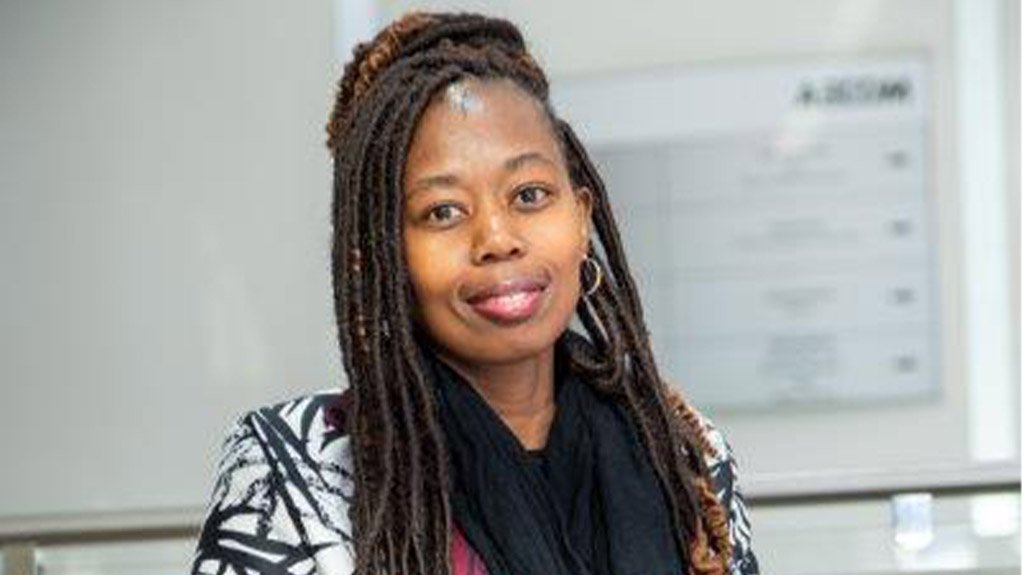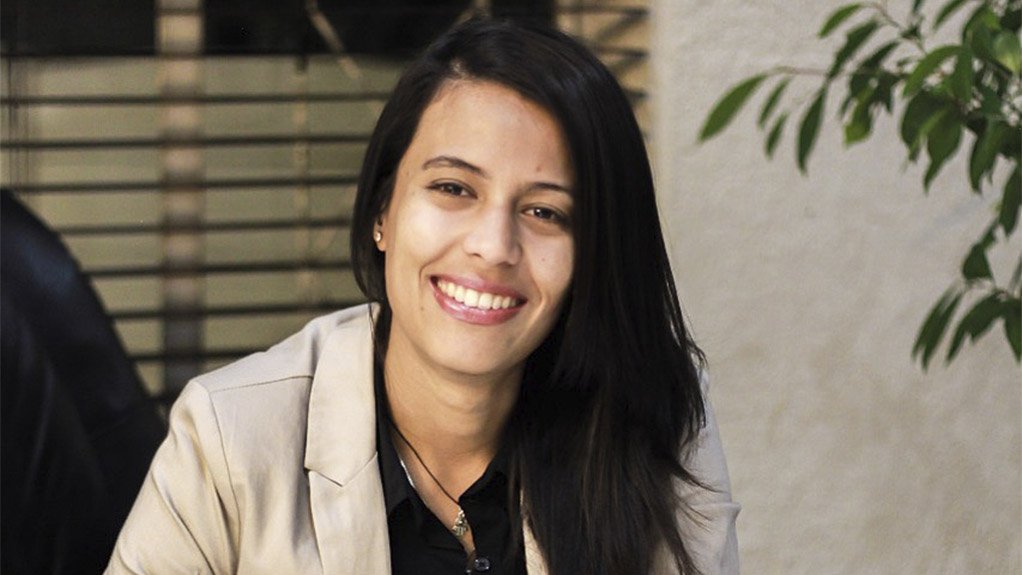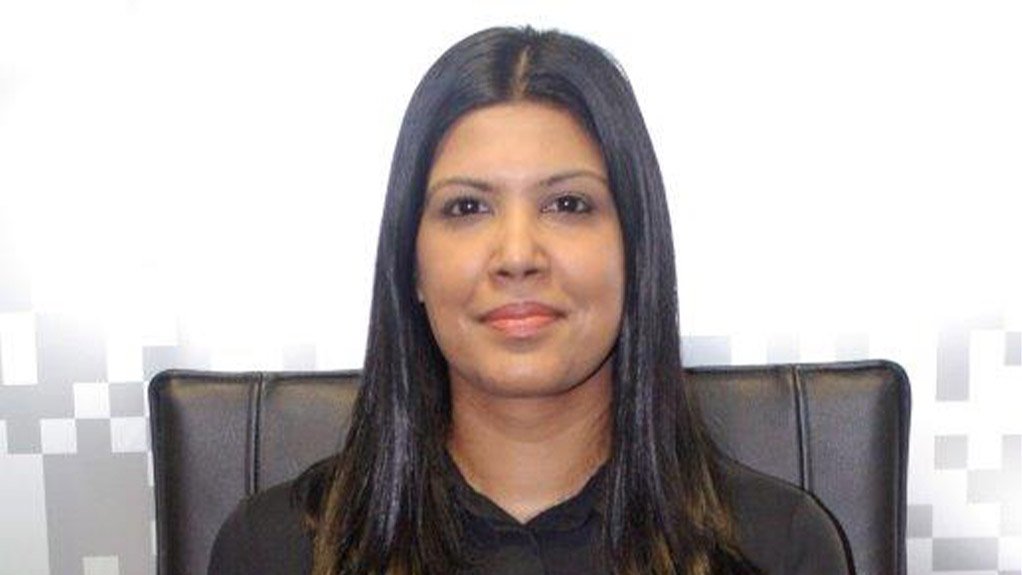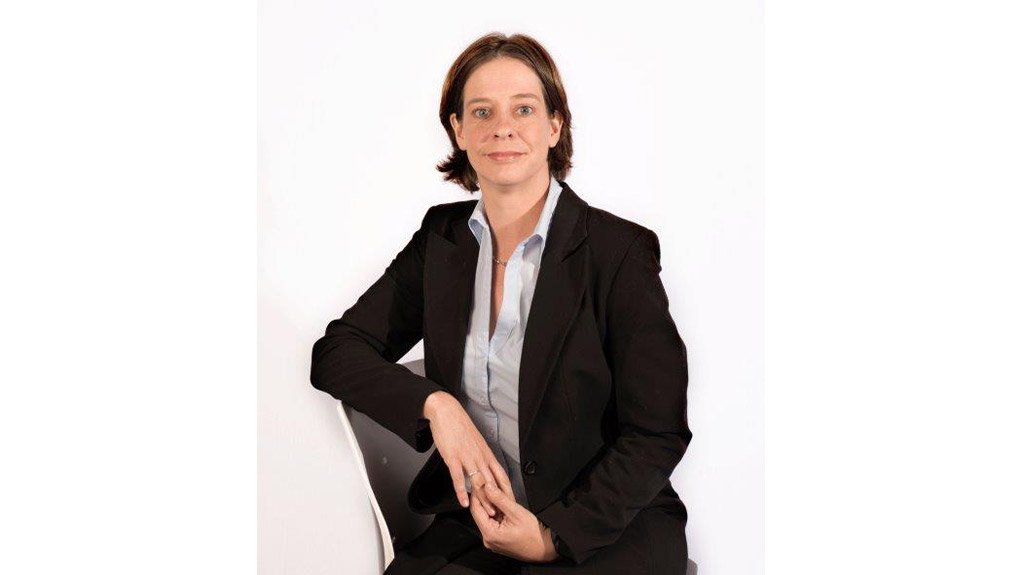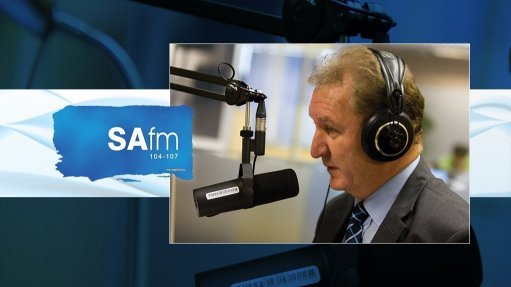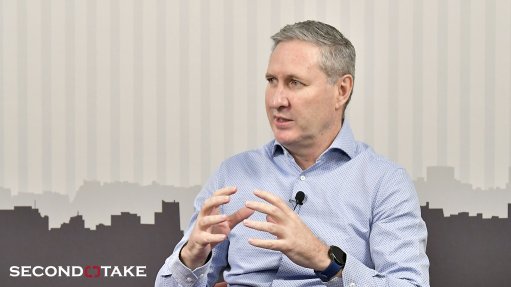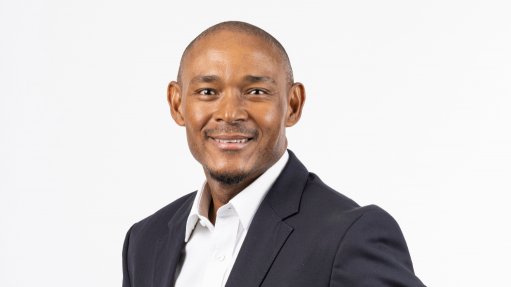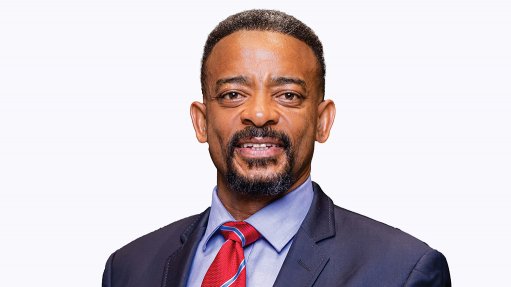AECOM champions inclusivity from project sites to the boardroom
This article has been supplied as a media statement and is not written by Creamer Media. It may be available only for a limited time on this website.
The fact that some of the best engineers are female puts to rest the misconception that women cannot excel in this demanding industry, which has traditionally been male-dominated. This is the view of Kim Timm (Pr Eng), who progressed from a bursary holder with AECOM Africa legacy company BKS over 20 years’ ago to her current role as Executive – Structures, Buildings and Places.
“We cannot, as women, complain that the world does not provide us with opportunities on a silver platter. We cannot expect others to do the footwork, and just reap the rewards. Each and every one of us must be the absolute best we can be in order to prove the naysayers wrong,” Kim asserts.
Kim has a BSc Eng (Civ) from the University of Cape Town and a MSc Eng (Civ) from the University of Stellenbosch. Describing herself as an all-rounder, she has worked on both heavy and light industrial, retail, commercial, and residential projects. “I enjoy the size and diversity of the projects, and the teams we get to work with.”
With no clear career direction in mind upon matriculation, Kim spoke to a career psychologist about civil engineering as an option, and was advised that this was not a suitable career for a woman. “I have to be honest and say that went a fair way to convincing me to give it a try. I was one of those lucky ones who, once I started studying, I knew I was in exactly the right place.”
However, starting her working career posed different challenges. “The contractors for the most part had never met any female engineers before, so tended to ask you to make tea and take minutes, and just flat-out ignored any engineering input you gave. It just meant you had to work three times as hard to prove yourself.”
However, there has definitely been improvement. “People are now used to having women in the industry, which helps. There is still bias, and we have a long way to go, but every new woman in the field helps change attitudes. AECOM is excellent at making everyone feel included. There are people you can talk to no matter the problem. If anything, I’d consider AECOM is driving women within the company to excel,” Kim stresses.
“The people at AECOM are what make it a great place to work. When you get to work on an interesting project with a good team, the world is a better place as a result. Engineering can be a wonderful career for a woman. It is not going to be easy, and there are days when you are going to want to rage against male chauvinism, and you do have to be prepared to fight on occasion, but the career itself is incredibly rewarding.”
Another example of a stellar promotion is Zenzi Mabuza as PCC Executive – Area Practice Lead for Project Management. “My promotion is a clear indication of AECOM’s commitment to the inclusion of women in senior leadership roles.” Zenzi has over 12 years’ industry experience to date, of which five years have been spent at AECOM.
By year-end she anticipates graduating with a Master’s Degree from the University of Salford in Manchester in the UK. With her thesis focusing on diversity and inclusion in the workplace, Zenzi points out that there is a gap in the construction industry from an advanced contract negotiation perspective.
“We have a lot of highly-technical projects. Understanding how we negotiate our contracts in a way to best meet the needs of our clients is a critical focus area. Being a project manager is not only about running the actual project, it is also heavily commercially orientated. Managing any changes on-site, and addressing these contractually, has a distinct commercial aspect, in addition to the technical requirement of compiling a team to deliver that project successfully.”
In terms of challenges, Zenzi notes: “I do feel there are times when our voice is not heard. Sometimes I have to reiterate my point in order to be taken seriously as a woman. At the end of the day, I am the project manager, and it is my decision. Even if you do not agree with it, as long as it delivers on our client expectations, that is what needs to happen. Yes, it is difficult for women in project management roles, as we have to be very assertive.”
Zenzi calls for the construction industry to look beyond gender in assessing the capabilities of professionals. “I do have a certain level of experience. Of course, not everyone is on the same level, but we respect what everyone brings to the table. As a non-technical project manager, we also need to inject innovation in collaboration, and it is this kind of thought process I bring to how we work.”
A rising star at AECOM Africa is Shameemah Davids, part of the Digital Project Delivery (DPD) Team as the Building Information Modelling (BIM) Lead for the Architecture Department. Davids is tasked with driving DPD innovation across AECOM’s offices. “I have implemented and trained hundreds of people across Southern Africa in BIM processes.”
She forms part of a larger multidisciplinary digital team within AECOM dedicated to DPD excellence. Her ambit is creating and managing architectural BIM standards, providing technical support and training, and assisting with BIM coordination. Holding a Bachelor of Technology Degree in Architecture, Shameemah describes herself as being passionate about digital problem-solving.
AECOM confidently motivates, mobilises, and coaches fellow colleagues to meet high performance standards. “I have now moved on to working on large local and international projects. I thrive on the complexity and challenges that come with delivering projects of this nature,” Shameemah adds.
She cites her work experience at AECOM as being “nothing less than phenomenal. I am very grateful to work with such a wonderful group of people. I am exposed to some of the greatest minds in the industry, and am constantly challenged to grow and be the best version of myself, not only in my career, but in my personal life as well.”
Interestingly, Shameemah stresses that a lot of the challenges she has faced are related more to age than gender. “Sometimes being young and growing quickly in your career can be a bit frustrating because you must do a lot more convincing when it comes to your level of experience and knowledge.
“I think I have been lucky enough to work with a generation of men who do not necessarily place women in boxes. I have worked with some great colleagues who have respected me and challenged me in a positive way. They have been very receptive towards my ideas and decisions and I, in turn, have learned a lot from them, too.”
Shameemah adds that there is a new level of open-mindedness in the broader construction industry. “There is less discrimination and more collaborative effort because people are more tolerant of one another. I think the industry is also on a bit of an upward curve with regard to adopting technology, being on the cusp of Industry 4.0 in making processes more efficient and leaner. There is more growth and opportunities for women in general to run projects in the digital realm, which has traditionally been male-dominated.”
At a management level, the seven-member team leading and implementing AECOM’s local and global human resources (HR) and transformation strategy in Africa includes six women. This is an indication of the diversity and inclusivity that permeates the culture at the leading global integrated infrastructure delivery company, according to Senika Devsheel, HR Director for Africa.
Senika has an Honours Degree in Psychology, majoring in Industrial Psychology. “My true experience in HR began in 2006 when AECOM legacy company Davis Langdon appointed me to start-up its HR department. I have been with the company ever since, gaining exposure to all aspects of HR. Every day is a learning opportunity, regardless of your position.”
Citing her major challenges to date, Senika stresses that women must work constantly to prove themselves. “I have also, to some degree, experienced the double standard for males and females respectively, especially with regard to being assertive in the workplace.” While the construction industry as a whole is changing, this is “not necessarily at the pace we would like to see.”
She highlights: “Organisations need to invest more in diversity and inclusion initiatives, thereby eliminating unconscious and conscious bias about women’s worth and capabilities in the workplace. Organisations need to embrace a flexible working environment, and change the view that you are only productive if you are visible. Women need to take ownership of their place in the industry, and remove self-created barriers,” Senika concludes.
Comments
Press Office
Announcements
What's On
Subscribe to improve your user experience...
Option 1 (equivalent of R125 a month):
Receive a weekly copy of Creamer Media's Engineering News & Mining Weekly magazine
(print copy for those in South Africa and e-magazine for those outside of South Africa)
Receive daily email newsletters
Access to full search results
Access archive of magazine back copies
Access to Projects in Progress
Access to ONE Research Report of your choice in PDF format
Option 2 (equivalent of R375 a month):
All benefits from Option 1
PLUS
Access to Creamer Media's Research Channel Africa for ALL Research Reports, in PDF format, on various industrial and mining sectors
including Electricity; Water; Energy Transition; Hydrogen; Roads, Rail and Ports; Coal; Gold; Platinum; Battery Metals; etc.
Already a subscriber?
Forgotten your password?
Receive weekly copy of Creamer Media's Engineering News & Mining Weekly magazine (print copy for those in South Africa and e-magazine for those outside of South Africa)
➕
Recieve daily email newsletters
➕
Access to full search results
➕
Access archive of magazine back copies
➕
Access to Projects in Progress
➕
Access to ONE Research Report of your choice in PDF format
RESEARCH CHANNEL AFRICA
R4500 (equivalent of R375 a month)
SUBSCRIBEAll benefits from Option 1
➕
Access to Creamer Media's Research Channel Africa for ALL Research Reports on various industrial and mining sectors, in PDF format, including on:
Electricity
➕
Water
➕
Energy Transition
➕
Hydrogen
➕
Roads, Rail and Ports
➕
Coal
➕
Gold
➕
Platinum
➕
Battery Metals
➕
etc.
Receive all benefits from Option 1 or Option 2 delivered to numerous people at your company
➕
Multiple User names and Passwords for simultaneous log-ins
➕
Intranet integration access to all in your organisation



